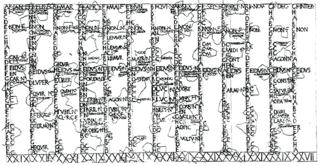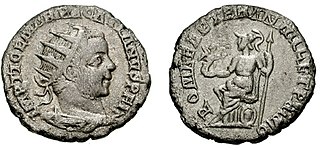
The Peloponnesian War was an ancient Greek war fought by the Delian League led by Athens against the Peloponnesian League led by Sparta. Historians have traditionally divided the war into three phases. In the first phase, the Archidamian War, Sparta launched repeated invasions of Attica, while Athens took advantage of its naval supremacy to raid the coast of the Peloponnese and attempt to suppress signs of unrest in its empire. This period of the war was concluded in 421 BC, with the signing of the Peace of Nicias. That treaty, however, was soon undermined by renewed fighting in the Peloponnese. In 415 BC, Athens dispatched a massive expeditionary force to attack Syracuse, Sicily; the attack failed disastrously, with the destruction of the entire force in 413 BC. This ushered in the final phase of the war, generally referred to either as the Decelean War, or the Ionian War. In this phase, Sparta, now receiving support from the Achaemenid Empire, supported rebellions in Athens's subject states in the Aegean Sea and Ionia, undermining Athens's empire, and, eventually, depriving the city of naval supremacy. The destruction of Athens's fleet in the Battle of Aegospotami effectively ended the war, and Athens surrendered in the following year. Corinth and Thebes demanded that Athens should be destroyed and all its citizens should be enslaved, but Sparta refused.
This article concerns the period 429 BC – 420 BC.
This decade witnessed the continuing decline of the Achaemenid Empire, fierce warfare amongst the Greek city-states during the Peloponnesian War, the ongoing Warring States period in Zhou dynasty China, and the closing years of the Olmec civilization in modern-day Mexico.

Alcibiades, son of Cleinias, from the deme of Scambonidae, was a prominent Athenian statesman, orator, and general. He was the last famous member of his mother's aristocratic family, the Alcmaeonidae, which fell from prominence after the Peloponnesian War. He played a major role in the second half of that conflict as a strategic advisor, military commander, and politician.
Year 411 BC was a year of the pre-Julian Roman calendar. At the time, it was known as the Year of the Consulship of Mugillanus and Rutilus. The denomination 411 BC for this year has been used since the early medieval period, when the Anno Domini calendar era became the prevalent method in Europe for naming years.
Year 413 BC was a year of the pre-Julian Roman calendar. At the time, it was known as the Year of the Consulship of Cossus and Medullinus. The denomination 413 BC for this year has been used since the early medieval period, when the Anno Domini calendar era became the prevalent method in Europe for naming years.
Year 415 BC was a year of the pre-Julian Roman calendar. At the time, it was known as the Year of the Tribunate of Cossus, Vibulanus, Volusus and Cincinnatus. The denomination 415 BC for this year has been used since the early medieval period, when the Anno Domini calendar era became the prevalent method in Europe for naming years.
Year 424 BC was a year of the pre-Julian Roman calendar. At the time, it was known as the Year of the Tribunate of Crassus, Fidenas, Rutilus and Iullus. The denomination 424 BC for this year has been used since the early medieval period, when the Anno Domini calendar era became the prevalent method in Europe for naming years.
Year 421 BC was a year of the pre-Julian Roman calendar. At the time, it was known in Rome as the Year of the Consulship of Vibulanus and Barbatus. The denomination 421 BC for this year has been used since the early medieval period, when the Anno Domini calendar era became the prevalent method in Europe for naming years.
Year 420 BC was a year of the pre-Julian Roman calendar. At the time, it was known as the Year of the Tribunate of Cincinnatus and Medullinus. The denomination 420 BC for this year has been used since the early medieval period, when the Anno Domini calendar era became the prevalent method in Europe for naming years.

Nicias, was an Athenian politician and general during the period of the Peloponnesian War. Nicias was a member of the Athenian aristocracy and had inherited a large fortune from his father, which was invested in the silver mines around Attica's Mt. Laurium. Following the death of Pericles in 429 BC, he became the principal rival of Cleon and the democrats in the struggle for the political leadership of the Athenian state. He was a moderate in his political views and opposed the aggressive imperialism of the democrats. His principal aim was to conclude a peace with Sparta as soon as it could be obtained on terms favourable to Athens.

The Sicilian Expedition was an Athenian military expedition to Sicily, which took place 415–413 BC during the Peloponnesian War between the Athenian empire on one side and Sparta, Syracuse and Corinth on the other. The expedition ended in a devastating defeat of the Athenian forces.

The History of the Peloponnesian War is a historical account of the Peloponnesian War, which was fought between the Peloponnesian League and the Delian League. It was written by Thucydides, an Athenian historian who also happened to serve as an Athenian general during the war. His account of the conflict is widely considered to be a classic and regarded as one of the earliest scholarly works of history. The History is divided into eight books.
Demosthenes, son of Alcisthenes, was an Athenian general during the Peloponnesian War.

Hyperbolus was an Athenian politician active during the first half of the Peloponnesian war, coming to particular prominence after the death of Cleon. In 416 or 415 he was the last Athenian to be ostracised.
The Athenian coup of 411 BC was the result of a revolution that took place during the Peloponnesian War between Athens and Sparta. The coup overthrew the democratic government of ancient Athens and replaced it with a short-lived oligarchy known as The Four Hundred.
Tides of War is a novel by Steven Pressfield, chronicling the Peloponnesian War.

Classical Greece was a period of around 200 years in Greek culture. This Classical period saw the annexation of much of modern-day Greece by the Persian Empire and its subsequent independence. Classical Greece had a powerful influence on the Roman Empire and on the foundations of Western civilization. Much of modern Western politics, artistic thought, scientific thought, theatre, literature, and philosophy derives from this period of Greek history. In the context of the art, architecture, and culture of Ancient Greece, the Classical period corresponds to most of the 5th and 4th centuries BC. The Classical period in this sense follows the Greek Dark Ages and Archaic period and is in turn succeeded by the Hellenistic period.
The period of the 5th century BC in classical Greece is generally considered as beginning in 500 and ending in 404, though this is debated. This century is essentially studied from the Athenian viewpoint, since Athens has left more narratives, plays and other written works than the other Greek states. If one looks at Athens, our principal source, one might consider that this century begins in 510, with the fall of the Athenian tyrant and Cleisthenes's reforms. If one looks at the whole Greek world, however, we might place its beginning at the Ionian revolt in 500, that provoked the Persian invasion of 492. The Persians were finally defeated in 490. A second Persian attempt failed in 481-479. The Delian League then formed, under Athenian hegemony and as Athens' instrument. Athens' excesses caused several revolts among the allied cities, which were all put down by force, but Athenian dynamism finally awoke Sparta and brought about the Peloponnesian War in 431. After both sides were exhausted, a brief peace occurred, and then the war resumed to Sparta's advantage. Athens was definitively defeated in 404, and some internal Athenian agitations ended the 5th century in Greece.
Phaeax was an Athenian orator and statesman. The son of Erasistratus, his date of his birth is not known, but he was a contemporary of Nicias and Alcibiades. Plutarch says, that he and Nicias were the only rivals whom Alcibiades feared when he entered upon public life.












